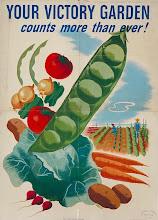A few days ago I went down into the root cellar and saw tiny spikes of carrot stem sticking up out of the damp sand. This November has been so mild my cellar hasn't been able to maintain the near-freezing temps needed to keep carrots in dormancy. So, I had a choice: do nothing and risk having most of my carrots turn to mush before I could use them, or process them to keep them from spoiling. I decided to process them.
Then, I had another choice: canning or freezing. Since my family prefers the taste of canned carrots, and since freezer space is definitely at a premium these days, I chose to can. Hubby spent a good chunk of the day Friday cleaning and chopping carrots while I was at work. Saturday morning the canning began in earnest. A visiting brother-in-law (thanks Nate!) was even roped in to help.
The canning continued off and on during the day, interspersed with a trip to town, playing with monkeys, a hot hotseat Civilization III game on the computer, and meal preparation. I finally put the pressure canner to rest at 2 am. I was determined to get it all done, and I did.
So, now we have 22 quarts and ten pints of canned carrots. And I now have the wisdom to keep my carrots in the ground until late fall, when the temperature in my root cellar is cold enough to stop carrot stems from growing up through the sand. Another lesson learned.

